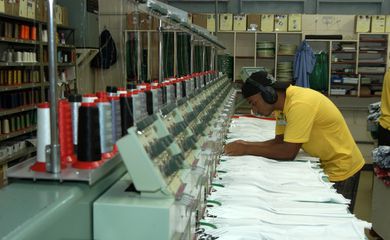Small industrial businesses to boost investment in sustainability

Most small industrial businesses (55%) in Brazil intend to invest more in the coming two years in the implementation of sustainable initiatives as part of the transition to a low-carbon economy. For 37 percent, funds should stay at the same level as they are today, and only four percent stated that investment is likely to be reduced.

The data can be found in a survey by the country’s National Confederation of Industry (CNI) with FSB Institute, which assessed the vision of these organizations regarding sustainability. Small industrial businesses were classified as advanced under some criteria. Even in the COVID-19 pandemic and the economic crisis, 20 percent of small firms increased their investment in these efforts.
Plans to reduce energy and water wastage have been adopted by 90 and 89 percent of the companies this size, respectively. The handling of solid waste is a reality in 85 percent of businesses.
According to the survey, three of every four (76%) executives stated that the industrial sector, considering Brazil’s current business environment, sees the topic of sustainability as an opportunity. Nearly a third of them believe the sustainability agenda comes with more opportunities than risks. Just 22 percent stated there are more risks than opportunities, or just risks.
The data, the CNI reported, show that small-sized industrial organizations are attentive to the importance of the implementation of concrete sustainability actions in its productive processes, in line with the strategy brought by the entity to the 27th UN Climate Change Conference (COP26), held from November 1 to 12 in Glasgow, Scotland. In this connection, the CNI argues there is no more room for the “false divergence” between development and environmental conservation.
For 16 percent of the executives heard, financing sustainable actions and raising society’s awareness should be among the government’s priorities. For 71 percent of the representatives from small industrial companies in Brazil, it is the task of the public administration to exert control and urge companies to comply with environmental rules.
Reasons for investment
The two main reasons leading small firms to invest in sustainability are its reputation among society and consumers (40%) and meeting regulatory requirements, also with 40 percent of replies. Cost reduction, with 36 percent, and the increase in competitiveness, with 34 percent, complete the list of items that most stimulate business people to adopt a sustainable agenda.
Conversely, the lack of a culture around the topic (46%) and scarce government incentives (45%) are named among the chief setbacks.
The study also found that a mere 36 percent of small industrial executives have had, as suppliers, a certificate or sustainable initiative as a criterion for hiring on the clients’ part. The rate is even lower (24%) if one considers sustainable criteria required by small industrial firms for hiring suppliers. The percentage of companies that have failed to sell a product for not showing a certificate or some sort of sustainable action demanded by the market is half as much: 12 percent.
Setbacks
Despite the positive indicators, the CNI stated, 79 percent of respondents admit they are little familiar or not familiar at all with the acronym ESG, used in reference to sustainable actions based on environmental, social, and governance pillars. “Although little or not familiar with the topic, 81 percent of business leaders said that ESG is important or very important,” the report reads.
In terms of organizational structure, only 21 percent of the companies have a formal section dedicated to dealing with sustainability. Of these, slightly less than half—ten percent—of the total of small companies provides this department with financial autonomy.
Another issue for CNI concerns the strategy and the establishment of sustainability goals: only 22 percent of the companies heard declared they have targets.
FSB Institute telephoned executives from 500 industrial small-sized companies in proportional amounts across all Brazilian states. The interviews were held from October 13 through 27, 2021. Numbers were kept more or less round, so total percentages may vary from 99 to 101 percent.


